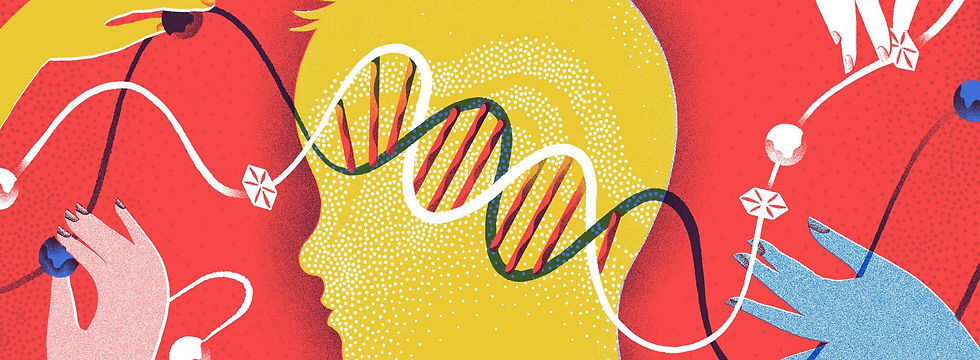COMPUTATIONAL GENOMICS
THE "HOW" OF SCIENCE

ISSUES
CAN WE TRUST COMPUTERS TO CHANGE OUR LIVES?
One potential disadvantage of bioinformatics is the fact that it utilizes software to analyze a person's genomic structure.
If these newly developed algorithms are faulty or inaccurate, they could cause doctors and pharmaceutical companies to make potentially dangerous recommendations to their patients. Another issue with using computers to analyze genetic data is the fact that humans could become dependent on the software.
This could lead to a deficiency of human skills and understanding of the genomic world. As the principles of genomics advance, the technology needed to analyze it becomes more complex.
Removing the human influence on the study could cause errors to be made in the field that could be potentially dangerous [2] [3].
WHO DOES MY GENETIC INFORMATION BELONG TO?
Another ethical issue is concerned with the principle of intellectual ownership and property of the genetic data stored in databases. No precedent exists that could mandate whether a participant in a genetic study forfeits their rights to information when they donate their DNA.
No legislation presents any scaffolding that would explain who maintains control of the data. Few laws do exist currently that outline methods to protect the anonymity of the donors, but nothing distinguishes who specifically has ownership of the data.
This is dangerous within itself because it could lead to the selling or wide-spread distribution of the genetic data. These ethical questions present a gray-area that could be risky if the government or any other companies tried to compromise the identity of the subjects [1] [2].
TOO COSTLY TO BE REASONABLE?
The technology that is required to study and utlize computational genomics and bioinformatics is costly, Projects like the Human Genome Project cost upwards of 2.7 billion dollars. The software that is used to produce the data necessary for the studies is extremely expensive. If these studies are supposed to become integrated into the common platform of scientific research, there needs to be a more cost-effecient way of using computers to produce results [2].
WOULD YOU WANT TO KNOW?
Have you ever heard the phrase "ignorance is bliss?" Almost eerily familiar to this question is one the major debates in bioinformatics: Would you want to know? The advanced analysis of someone's genome, combined with technology that can easily pinpoint the correlation of genetic mutations with diseases can easily provide someone devastating information that they are better off not knowing.
For instance, the knowledge that you carried the genetic probability for diabetes could lead to motivation to live a better, healthier life in order to reduce environmental stressors. However, knowledge that you possessed the gene that coded for Huntington's Disease- a nonreversable neurodegenerative disease with no cure- could be devastating information that could spoil the last few years that you had with your family.
As bioinformatics grows in prevalence, people are going to need to make the individual decision about how much they want to hold on to their blissful ignorance [1].
